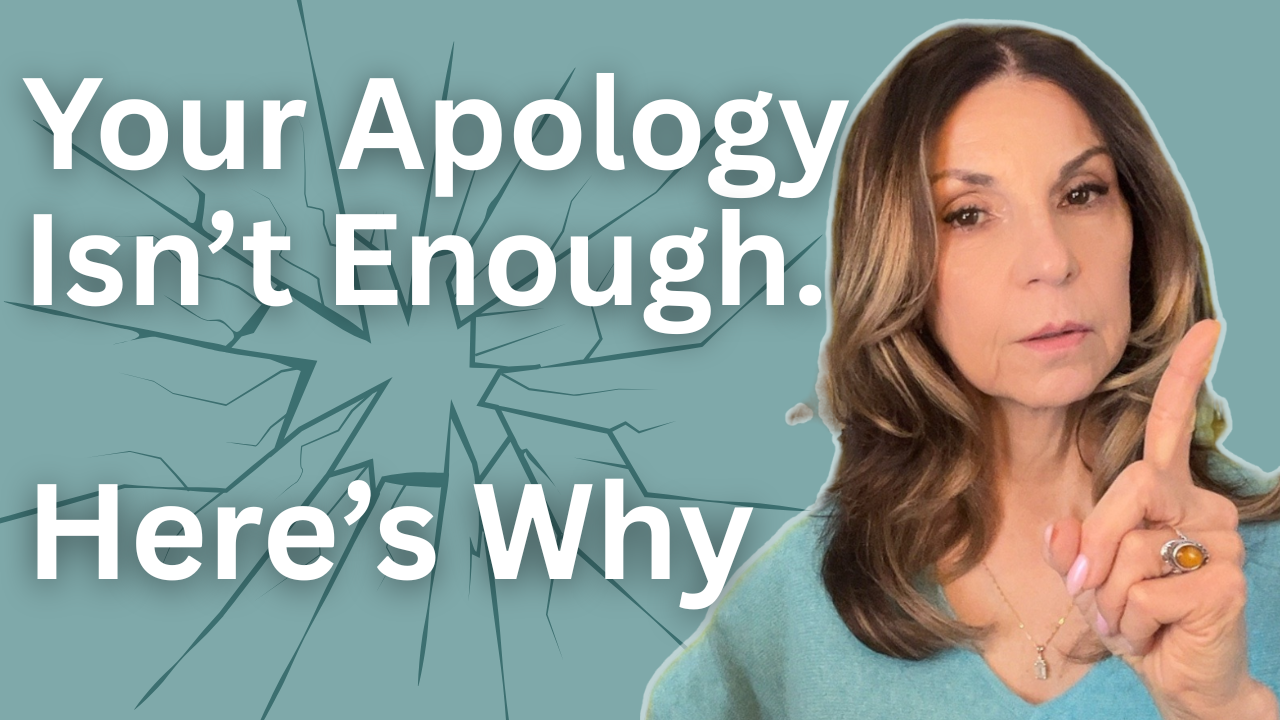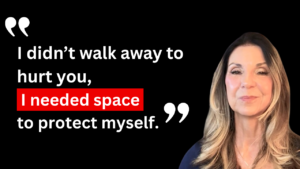You finally apologized. You meant every word. You thought the door to reconnecting with your adult child would begin to open. But instead? Silence. You’re left wondering why adult children stay distant after an apology.
You’re left wondering: Why would my child still stay away, even after a heartfelt apology?
If this is your experience, you’re not alone. Many parents who care deeply and try to repair estranged relationships feel confused and hurt when their apology doesn’t lead to reconnection. As a therapist and someone who has walked this road with countless families, I want to gently share why adult children sometimes remain distant, even when you’ve said “I’m sorry.”
Apologies That Heal vs. Apologies That Trigger
A sincere apology is powerful, but only when it is delivered in a way that feels emotionally safe for the person hearing it.
The truth is, not all apologies feel safe to receive. Even if yours came from the heart, your adult child may not be ready to hear or trust it. Several factors can make even a heartfelt apology feel difficult or triggering:
- Timing matters. If your adult child is still grieving or processing pain, an apology can feel like pressure to forgive too soon.
- Tone and subtext matter. A well-meaning phrase like “I’m sorry, but I did my best” can be heard as deflection instead of actual ownership.
- Past patterns shape current perception. If previous apologies were followed by defensiveness, boundary violations, or more hurtful behavior, your adult child may brace themselves when they hear “I’m sorry.”
- Too much personal context can feel overwhelming. If your apology concerns your pain, your child might feel emotionally burdened. Writing this out for yourself is okay, but that version may not be helpful to send.
Many adult children hear an apology and brace themselves for the “but.” That’s why it’s essential to offer a clean, clear apology that doesn’t include justification or too much detail.
If you’re considering writing a letter of amends, I have a guide to walk you through this process thoughtfully and carefully.
The Wounds They Carry
Many estranged adult children are not just reacting to one moment or event. They are grieving what they never had—emotional safety, consistent validation, or a parent who could handle their emotions without shutting down or lashing out.
So when they receive an apology, it can stir up both hope and fear.
- I hope things are different.
- Fear that it’s only temporary, or that closeness will mean reopening old wounds.
They may silently ask themselves:
- Will I be guilted into reconnecting before I’m ready?
- Will I end up having to comfort my parent again?
- Can I say how I feel without them getting defensive?
It’s not that they want to punish you. They are trying to protect themselves.
Why They Stay Distant
Even after an apology, an adult child may stay distant for many reasons:
- They don’t yet trust that real change has happened. They’re looking for consistent actions over time, not just words.
- They feel inner conflict. Many adult children love their parents, but also carry resentment, hurt, or fear.
- They’re protecting themselves from old patterns. Even repaired relationships can feel risky.
- They want you to do your healing. They may wait to see whether you’re doing deeper emotional work rather than just reaching out to fix things quickly.
You may wonder how they know I’ve changed if they won’t talk to me?
Sometimes, estranged children check in indirectly—through siblings or extended family. If they’ve gone fully no-contact, they’ve had to make that boundary very strong to feel emotionally safe.
That’s why doing your healing work, even during no-contact, is never wasted. It can only help if and when they ever soften.
Repair is not a one-time event. It’s a process.
What You Can Do Instead
So, what helps if an apology alone isn’t enough?
Here’s what I’ve seen work over time:
- Do the deeper work. Understand what shaped your parenting. Learn what your adult child may have needed emotionally that wasn’t there.
- Show emotional consistency. Demonstrate that you can hear hard truths without becoming defensive or overwhelmed.
- Respect their space. Sometimes, love means stepping back instead of reaching in.
- Be patient. Healing doesn’t follow your timeline. It follows theirs.
- Surround yourself with a growth-minded community. Avoid echo chambers that only feed blame or resentment. While these might feel validating at first, they often stall healing.
This repair work is more about who you become than what you say.
A Message of Hope
Your apology mattered. But your growth matters even more.
You are not a villain. And your adult child is not just being cruel. You are both trying to figure out what to do with a painful past.
You’re here. You’re trying. That alone is significant.
Rebuilding a relationship—one based on emotional safety, honesty, and mutual respect—takes time, courage, and commitment, but it is possible.
So, if you’ve been wondering why adult children stay distant after an apology, I hope this offers some clarity and hope.
What’s Next?If you want to take the next step toward healing, I encourage you to watch my video, “They Cut You Off…Now What? Starting the Family Repair Process.” It outlines the first steps in rebuilding connection after estrangement—and what family repair actually looks like. You can also download my Letter of Amends guide for step-by-step support in writing a safe, respectful, and emotionally attuned message. If you’re ready for more personalized guidance, I offer one-on-one strategy sessions to help parents and families begin this work with clarity, compassion, and structure. You don’t have to do this alone.









